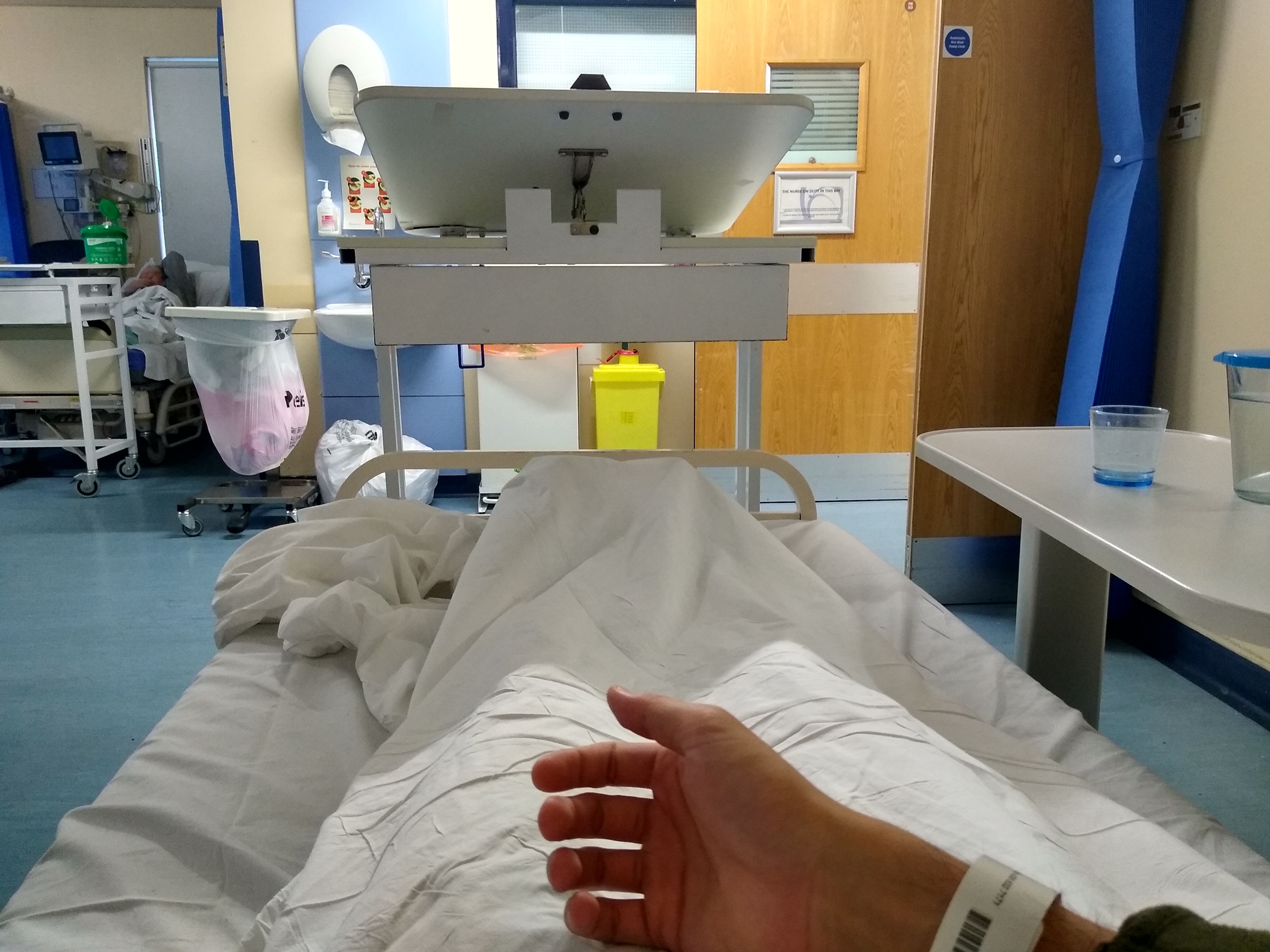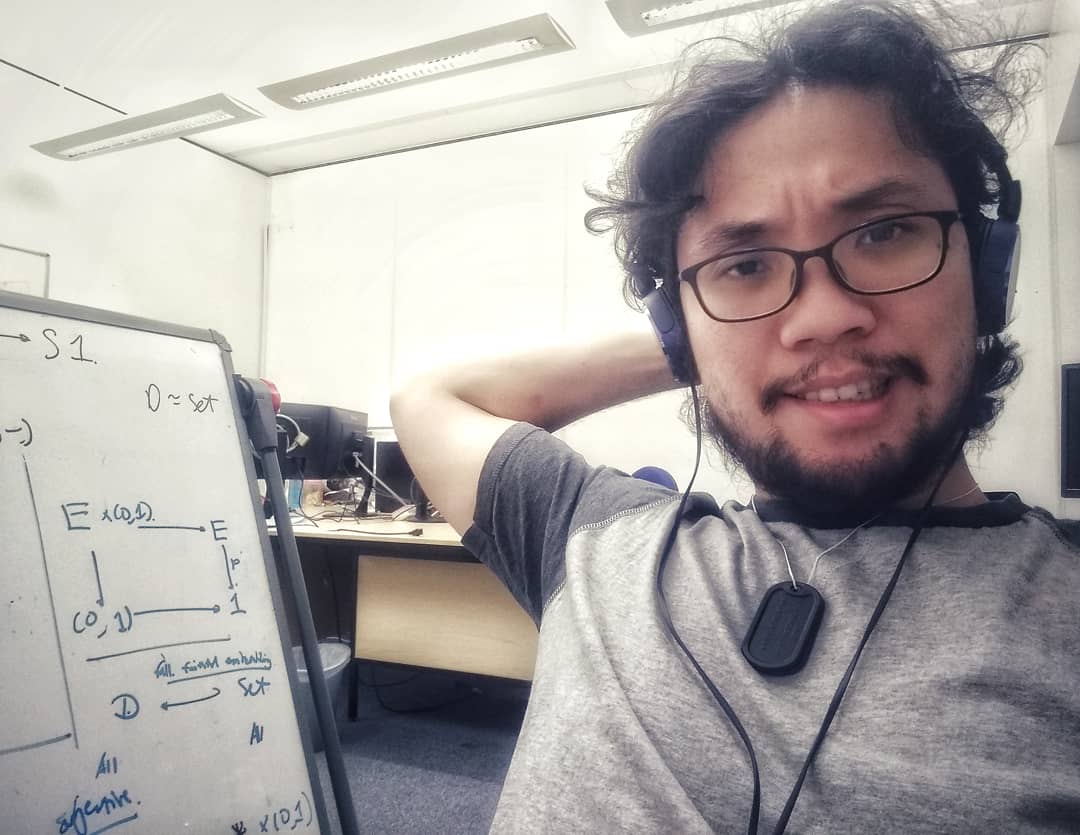36 hours at Heartlands Hospital
Published:

On Tuesday evening, when biking back home from a DA Society event, I got run over by a car.
Everyone has been asking me what happened, and I honestly can’t remember. One minute I was riding along a familiar road close to home, the next minute I’m on my back staring into the faces of concerned paramedics. “Just like in one of those TV shows,” I later said to one of the nurses.
The next 36 hours in hospital were interesting. With the poet’s sense of artifice, I’ve toyed with this image of the hospital being a landscape of artificial Arctic whiteness, blank and featureless, with vampiric surgical instruments lingering over the still bodies of patients.
But in fact, the reality is governed by sounds. In my long wait at A&E, I heard the nurses coo approvingly over each other’s wedding photos (“Oh is that your sister? She looks so beautiful!”). As I lay in bed trying to sleep, I listened to the metallic chirrup of machines, the persistent burring of office phones, and the occasional loud tear of gaffa tape. And as I waited for my X-ray scan, I heard the doctors noisily draw the curtains round the girl laying in the bed next to mine, before she tearfully told them about her cocaine habit, and how she cut herself because of how bad the withdrawals were getting (“Please don’t tell my father!” Her voice sounded thick with emotion, and unsteady).
Our sense of privacy seems marked by an incongruity. Obviously the girl must’ve known that I could hear her, but she told the doctors she was fine talking to them as long as the curtains were drawn around them. Sight, it seems, is more embarrassing than sound. I guess, just as someone once remarked: “Why else would we insist on three-quarter stalls in public bathrooms?”
Still, in a hospital full of strangers with no one to visit me because of COVID restrictions, I’ve managed to find some warmth of human conversation, often given shape by dry British humour. As I entered a new hospital ward, we greeted each other like prison inmates.
“What you in for?” I asked the man in the bed next to me.
“Draining fluids from my stomach.” Came his gruff reply. “You?”
“Car accident. Broke my clavicle & suffered minor brain bleeds, so I’m being put under observation. Should be out tomorrow.”
“Ah well, that’s not too bad, is it? I’ve been here since Friday. Least it’s not as bad as that guy over there, he lives here, ha!” A short bark of laughter. I nodded and smiled thinly.
This man later lent me his phone charger, which is how I’m typing this on my phone right now. (“Well you’re not going to run away with it, are you?” He said, as I thanked him.) My phone battery was on its last legs after 12 hours of being in the hospital. I gladly used this opportunity to recharge my device, and send some messages to a few friends and my PhD supervisor.
I guess the thing I was concerned about most was boredom and isolation. I did have the fleeting thought: “Wow I did not see the accident coming, I could have died or been crippled”. But when it seemed that the only bone broken was my left clavicle (which hurts like a bitch btw, but I’ll live) and I only suffered a mild concussion, I counted my blessings and began to ponder instead how I should fill my time at the hospital, outside of observing other people and listening to new sounds whilst confined to my hospital bed.
True to my nature, I’ve been making jokes with the nurses and having the occasional long chats. When one of the nurses wheeled me to get an X-ray of my shoulder, I grinned and said: “Right, showtime!” During the wee hours of Wednesday morning, and there was still too much noise in the building for me to sleep off my concussion, a nurse working the night shift came to my bed, and we both chatted and mused about our reluctance to ask other people for help. (“It’s not a sign of weakness to ask for help, you know,” she said. “No, I know that,” I replied. “I think my reluctance is because of something much more basic than the fear of appearing weak. It’s more like – this is my problem, not your problem, I don’t want to be an imposition or burden.”)
I think it’s good that I didn’t forget or lose who I was whilst at hospital. I wasn’t just a damaged body making its way through its impersonal walls. And I did enjoy some of my interactions with the people here. But at the same time, I’m ready to leave. At any moment now, hopefully, the doctor will come in with my papers and I’ll be discharged. Then, I can finally go home and get on with the rest of my life.

Leave a Comment